Text
Remarks by the United Nations General Assembly President on behalf the Commemoration of the International Day of Zero Waste 2024; March 30th.
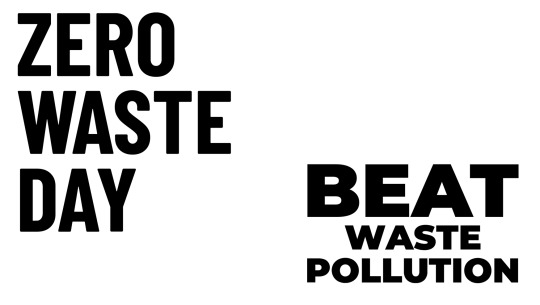
Your Excellency, Sedat Önal, Permanent Representative of the Republic of Türkiye to the United Nations, Ms. Ligia Noronha, Head of UNEP New York Office, Ms. Mr. Michal Mlynár, Acting Executive Director of UN-Habitat, Excellencies, Ladies and Gentlemen,
Let me begin by commending the Permanent Mission of the Republic of Türkiye, the United Nations Environment Programme, and UN-Habitat for co-organizing today’s event – marking the International Day of Zero Waste. We are all deeply appreciative of your ongoing efforts to promote zero-waste initiatives – contributing to advancement of the 2030 Agenda for Sustainable Development. I think it more than appropriate to pay tribute to the distinguished First Lady of the Republic of Türkiye, Ms. Emine Erdoğan, the protagonist and initiator of the Zero Waste project in her own country. It was the astounding success of this that motivated the General Assembly to the adoption of a resolution tabled by the Republic of Türkiye – declaring 30 March as the International Day of Zero Waste.
Excellencies, The numbers and trends speak for themselves in describing the situation as nothing short of harrowing: 2.24 billion tons of municipal solid waste are generated annually, around 931 million tons of food is lost or wasted each year, up to 14 million tons of plastic waste enters aquatic ecosystems,
and food loss and waste accounts for up to 10 per cent of all greenhouse gas emissions – significantly contributing to the climate crisis. Without urgent action, it is projected that annual municipal solid waste generation will hit 3.8 billion tons by 2050. Moreover – if we cling to the business-as-usual mentality – we will have more plastic than fish in the ocean by 2050.
Excellencies, Today – as we commemorate this important day – we urgently need to pause and rethink the unsustainable linear development model of “take, make and dispose” we have been so actively pursuing. It is high time we replace that model with sustainable practices of production and consumption to minimize our ecological footprint – including adopting a circular approach that promotes a resource efficiency model of reduce, reuse and recycle.
To achieve this, we must shift our perspective and accelerate our efforts to develop and implement zero-waste initiatives to foster the environmentally sound management of waste; the minimization of waste; and – where feasible – the total prevention of waste. Such a societal shift should not be a burden. Rather, it should be seen as an opportunity not only to mitigate environmental harm but also to foster innovation, create green jobs, and promote social inclusion. It should also be viewed as an opportunity to invest in sustainable infrastructure, prioritize eco-friendly technologies, and empower communities to become true stewards of their own environment. Allow me to also reiterate the commitments made by the world leaders in the 2023 SDG Summit political declaration – which acknowledged the serious threats posed by plastic, air, and chemical pollution, and expressed firm support for an international legally binding instrument on plastic pollution. I am also deeply grateful to share this moment with a youth representative. The youth are the change-makers. Their perspectives and actions are absolutely critical in our efforts to reach zero waste – and they deserve a say on such matters that have a life-changing impact on their future.
Meeting our zero waste objectives and targets requires a comprehensive multi-stakeholders approach, at all levels – from grassroots initiatives to national policies, from corporate boardrooms to international fora. Our approach must also square the circle to encompass policy alignment, knowledge sharing, capacity-building, resource mobilization, and technology transfer. Importantly – and in the true spirit of leaving no one behind – our commitment and indeed our transition to Zero Waste must be beneficial to all, especially countries in special situations.
Excellencies, Ladies and Gentlemen, Let me close by reiterating that our commemoration today is rooted in a robust commitment to pursue and attain sustainability within the framework of the 2030 Agenda – through, among other things, converting to sustainable patterns of production and consumption. To this end, sustainability remains one of the core priorities of my Presidency – the full manifestation of which will be rolled out during the inaugural Sustainability Week I will be convening from 15 to 19 April. I envision that this Week of back-to-back high-level engagements will spark in-depth discussions on transport, tourism, energy, infrastructure, and debt sustainability and socio-economic equality – propelling substantial progress in these key sectors of the economy.
I further expect that Zero Waste initiatives – with their cross-cutting relevance across these sectors – will feature prominently in the discussions. Furthermore, it is my sincere hope that the harvest from this Week will both inform the deliberations of the Summit of the Future and accelerate momentum towards attaining all the SDGs. The journey towards Zero Waste does not by any means involve a simple unplanned destination – but rather, a continuous process of learning, adaptation and innovation. As the President of the General Assembly, I will play my part – and I call upon us all to harness the power of collective action and solidarity to turn the tide on waste.
I wish you all a fruitful discussion.
I thank you.
H.E Mr. Dennis Francis; United Nations General Assembly President.
#waste management#international day of zero waste#30 march#zero-waste initiatives#take action#zero waste#industrial waste#municipal solid waste#solid waste#Statements#united nations general assembly
0 notes
Text
Pollution by waste has adverse impacts on human health and biological diversity.
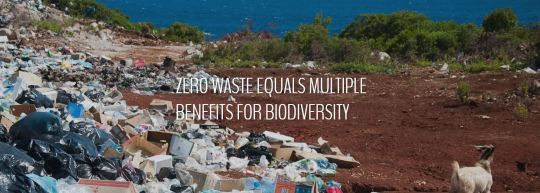
Plastic waste is a case in point: according to the World Bank, it accounted for 12 percent of all municipal solid waste in 2020. The harmful chemicals it contains make plastic waste hazardous for both people and nature. The sheer scale of plastic leakage into the environment is disrupting habitats and natural processes. A 2016 technical report by the Secretariat of the Convention on Biological Diversity (CBD) indicated that marine debris is a globally significant stressor on the marine and coastal environment. 800 marine species are affected by plastic pollution, including microplastics that are ubiquitous in the ocean.
Learn about the adverse impacts of Pollution by waste.
#Pollution by waste#waste management#international day of zero waste#30 march#chemical waste#waste pollution#convention on biological diversity (CBD)#campaign
0 notes
Text
Zero Waste Futures.

On March 26th, 2024; The UNEP, UN-Habitat and partners will organize a webinar entitled "Zero Waste Futures" | Online | 10–11:30 a.m. ET, 4–5:30 p.m. CET, 6–7:30 p.m. EAT..The UNEP International Environment Technology Centre, the Caribbean Sub-Regional Office (CSRO) and the Children and Youth Major Group to UNEP (CYMG) will co-organize this online event targeting stakeholders across regions and oceans, especially youth and experts to promote the global shift towards zero waste. Register to participate.
#zero waste initiatives#zero waste lifestyle#zero waste month#zero waste#zero waste practices#sound waste management#un environment#solid waste#waste management#international day of zero waste#30 march#beatwastepollution
0 notes
Text
Create a cleaner and healthier environment in the Western Balkan economies.
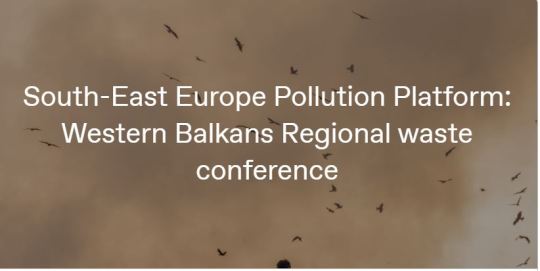
The conference aims to facilitate and foster discussions on current and innovative strategies, possibilities, policies and practices that promote waste prevention, reduction, recycling, and circular economy principles to create a cleaner and healthier environment in the Western Balkan economies.
Additionally, it will actively encourage collaboration amongst different actors and sectors, aiming to promote sustainable practices and the adoption of environmentally friendly technologies. Learn more and register.
South-East Europe Pollution Platform | Vienna & online | 9 a.m. to 4 p.m. CET (26 March); 9 a.m. to 3:30 p.m. (27 March).
#South-East Europe Pollution Platform#united nations office in vienna#unov#circular economy#waste prevention#waste reduction#waste removal#waste recycling#efficient practices#zero waste practices#conferences#environmentally friendly technologies
0 notes
Text
Enhance responsible waste management.
On March 27th, 2024 - the United nations observance of the CR-12, starting at 10–11:30 a.m. ET will be held in United Nations Headquarters, New York. Member States and stakeholders are invited to share initiatives promoting zero waste at various levels to reduce waste generation and enhance responsible waste management.

#international day of zero waste#30 march#waste management#solid waste#zerowaste#zero-waste initiatives#municipal solid waste#take action#industrial waste
0 notes
Text
Tracking progress to have global food waste.
To catalyse essential action towards reducing food waste and achieving SDG 12.3, it's imperative to grasp the extent of food waste. Measuring food waste allows countries to comprehend the magnitude of the issue, thereby revealing the size of the opportunity, while establishing a baseline for tracking progress.

The Food Waste Index Report 2021 marked a pivotal moment in understanding global food waste across retail, food service, and household sectors. It unveiled a greater availability of food waste data than anticipated, particularly at the household level, and revealed that per capita household food waste generation was more consistent worldwide than previously thought.
The Food Waste Index Report 2024 builds upon its predecessor in three key ways: Firstly, it incorporates vastly expanded data points from around the world, providing a significantly more robust global and national estimates, detailed in Chapter 2 of the main report. Secondly, it expands on the SDG 12.3 food waste measurement methodology introduced in the 2021 report, offering enhanced guidance on measurement across retail, food service, and household sectors. This additional guidance delves into various methodologies, their strengths and limitations, and strategies for prioritising sub-sectors for measurement, as explored in Chapter 3. Lastly, the report transitions from focusing solely on food waste measurement to exploring solutions for food waste reduction. The chapter examines effective approaches to reducing food waste globally, with a spotlight on public-private partnerships in this 2024 report.
Explore the Food Waste Index Report 2024!
youtube
#solutions for food waste reduction#Think.Eat.Save#united nations environment programme#household food waste#sdg 12.3 food waste indicator#food waste#food waste reduction#food waste index report#Youtube
0 notes
Text
Launch of the UNEPP Food Waste Index Report 2024.
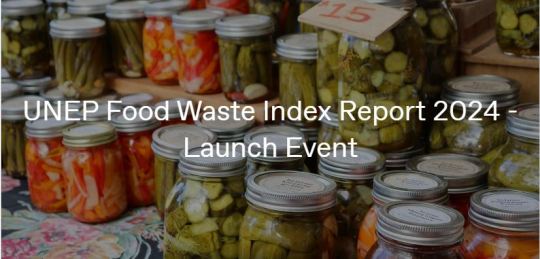
The UNEP Food Waste Index Report 2024 authors, government representatives, and food waste and loss experts share their expertise through discussions of the report’s key findings. Tune in.
UNEP Food Waste Index Report 2024 launch | Online
8:30–9:30 a.m. EDT,
1:30–2:30 p.m. CET,
3:30–4:30 p.m. EAT.
INTERNATIONAL DAY OF ZERO WASTE 2024 - UNEP Food Waste Index Report 2024 launch.
To mark the second annual International Day of Zero Waste, UNEP will launch its Food Waste Index Report 2024 on 27 March 2024. The report provides the latest global estimates on food waste, occurring at retail and consumer level. Addressing food waste is an important facet of embracing zero waste and tackling the climate crisis.
Objective: UNEP, as custodian of the SDG 12.3 food waste indicator, publishes a triennial report tracking country-level progress to halve food waste by 2030. First published in 2021, the initial report demonstrated that household food waste is a global challenge, not limited to high-income countries. UNEP and report authors WRAP will highlight the report’s findings and recommendations and the panel discussion will explore G20 action to deliver Sustainable Development Goal 12.3.
#international day of zero waste#household food waste#Food waste index report#sdg12#SDG 12.3 food waste indicator#united nations environment programme
0 notes
Text
Zero-waste City Construction: A sustainable action to beat waste pollution.
On March 30th, a webinar entitled ‘‘Zero-waste City Construction: A sustainable action to beat waste pollution.’’ will be held Online | 11 p.m. EET, 12 p.m. EAT, 5 p.m. CST.City representatives from Australia, Brazil, China, Lebanon and New Zealand showcase practices of zero-waste initiatives in different regions. Register.

#zero waste#City construction#united nations environment programme#Basel convention#Hangzhou municipal ecology and environment bureau#Training and technology transfer#webinars#beatwastepollution#international day of zero waste#sustainable actions
0 notes
Text
Zero Waste Europe - New economies.
From March 18 to 24; This Is Zero Waste - International Day of Zero Waste 2024 Campaign New economies | Beat Waste Pollution!

#circular economy#zerowaste#solid waste#municipal waste#industrial waste#zero waste europe#campaign#zero waste initiatives#ThisIsZeroWaste#ZeroWasteDay#BeatWastePollution
0 notes
Text
Zero Waste Europe - Thriving communities.

From 25-30 March, Participate to the Zero Waste Europe Campaign "Thriving communities" to mark the International Day of Zero Waste 2024.
#Thriving communities#zero waste europe#campaign#international day of zero waste#zero waste practices
0 notes
Text
Global Zero Waste.
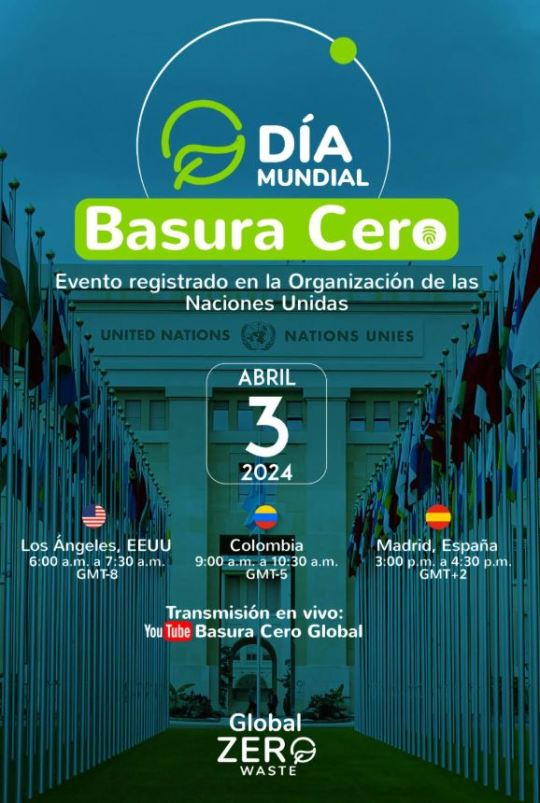
Week of 1 April - Global Zero Waste: Día Mundial Basura Cero | Online | 3 April; 9 a.m. COT, 3 p.m. CET: Global Zero Waste will host keynote speeches and share success stories and presentations of new challenges. Learn more.
El 30 de marzo se conmemora el Día Mundial Basura Cero, declarado mediante la Resolución 77/161 de la ONU, que promueve iniciativas para abordar la Agenda 2030 para el Desarrollo Sostenible.
Por esta razón, desde Global Zero Waste desarrollaremos el día 3 de abril de 2024 un evento virtual para celebrarlo con expertos/as y líderes de pensamiento, en donde discutiremos y revisaremos experiencias y estrategias efectivas de circularidad de materiales y gestión integral de residuos.
Inscríbete en el formulario para participar:
Únete a la conversación mientras exploramos soluciones innovadoras para reducir, reutilizar y reciclar.
0 notes
Text
Zero Waste Europe: Impactful policies.
Week of 11 March - Zero Waste Europe: Impactful policies | Online; The second week of Zero Waste Europe's month-long International Zero Waste Day campaign focuses on impactful policies. Learn more.
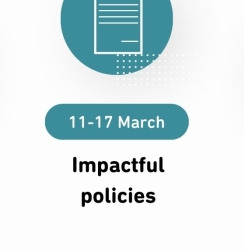
#Impactful policies#international day of zero waste#waste management#zero-waste initiatives#policies#campaign
0 notes
Text
Zero Waste Europe: Prevention first.
Week of 4 March - Zero Waste Europe: Prevention first | Online.
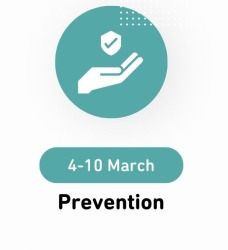
The First Week of Zero Waste Europe's month-long International Zero Waste Day campaign focuses on prevention first. Learn more.

0 notes
Text
How to escalate progress on zero waste worldwide?
Our panelists will dive into the cross-cutting themes that enable the transition into zero waste, including climate and waste management finance, social inclusion, waste prevention through plastic reduction, organic waste management, and more, as well as the myriad social and economic co-benefits municipalities have seen through the implementation of zero waste systems.
On March 30th, the GAIA will held a panel discussion entitled ‘‘The Year of Zero Waste: From Momentum to Action’’ | Online | 9 a.m. CET, 11 a.m. EAT, 1:30 p.m. IST, 9 p.m. NZDT.
Policymakers, grassroots community leaders, climate and waste finance experts, and zero-waste implementers' discuss how to escalate progress on zero waste worldwide based on current trends, obstacles and proven strategies. Register.

#international day of zero waste#waste management#solid waste#municipal solid waste#zero-waste initiatives#industrial waste#zero waste#Webinars
0 notes
Text
Underscore the critical importance of collective action in driving forward zero-waste initiatives.
Increase knowledge about the importance of Zero Waste and its potential to protect the environment and promote sustainability.
Showcase zero-waste initiatives and success stories from Member States and good practices selected by the Advisory Board on Zero Waste.
Encourage governments, individuals, communities, and organizations to adopt Zero Waste principles and practices and to take action to rethink, reduce and recover waste.
The event serves as a platform to underscore the critical importance of collective action in driving forward zero-waste initiatives.
Watch the observance of the International Day of Zero Waste 2024 in Nairobi, Kenya!
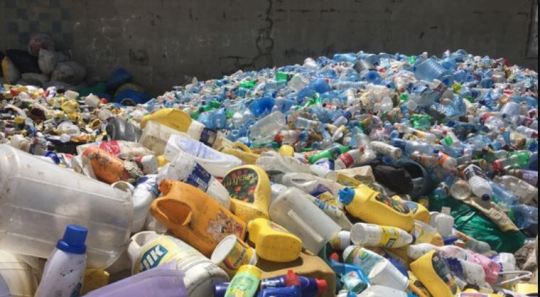
#zero-waste initiatives#collective action#waste management#solid waste#international day of zero waste#zerowaste#30 march#municipal solid waste#reduce waste#recover waste#Zero Waste principles#Zero Waste practices
0 notes
Text
Leading Edge Industry Solutions for resource management professionals!
Webinar organized by the Northern California Recycling Association: Recycling Update | California, United States | 11 March; 8 a.m. PDT;

NCRA's Recycling Update features 25 experts on the spectrum of Reduce, Reuse, Recycle and Rot, as well as networking opportunities and plenty of ideas. Learn more.

#Northern California Recycling Association#international day of zero waste#waste management#webinars#networking opportunities#Reduce-Reuse-Recycle#industrial waste management
0 notes
Text
Global Waste Management Outlook 2024.
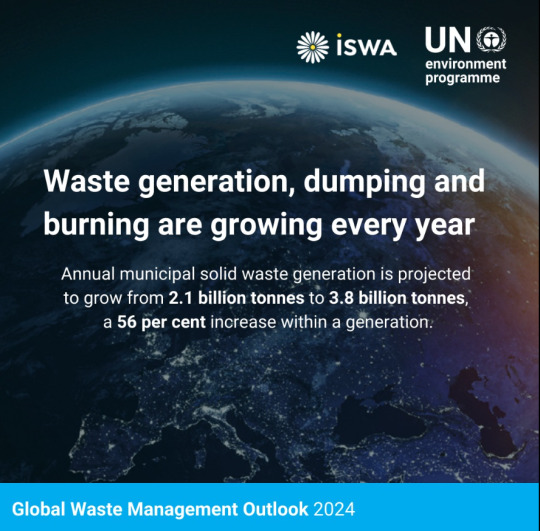
A new report by the UNEP International Environmental Technology Centre calls for a swift transition to zero waste and circular economy approaches to tackle projected increase in municipal waste.
#International Environmental Technology Centre#unep#zero waste#circular economy#municipal solid waste#solid waste#GWMO2024#UNEA6#rubbish#Waste Management
0 notes